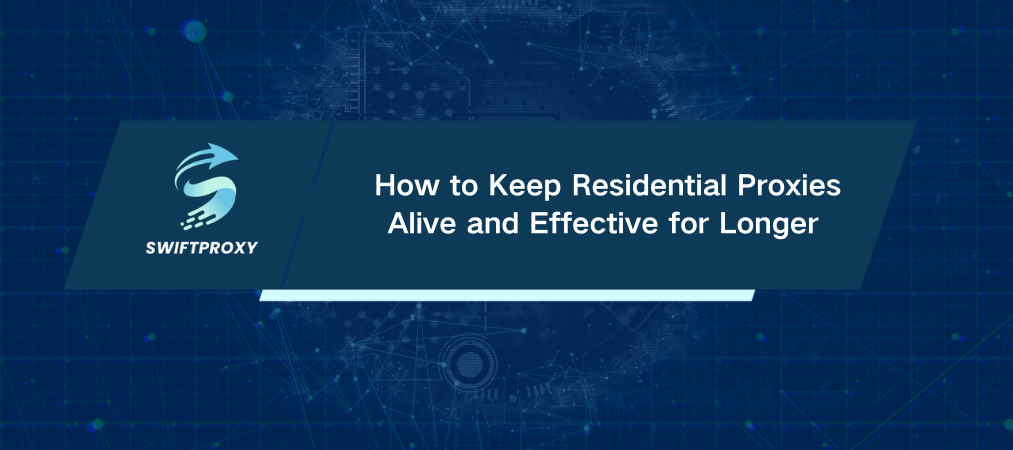How to Keep Residential Proxies Alive and Effective for Longer

Residential proxies are the unsung heroes behind countless secure online activities. But here's the catch — their lifespan isn't set in stone. So, how long can you realistically count on them? Let's break it down.
What Are Residential Proxies
Think of residential proxies as your personal gateway to the internet, but with a disguise. They're IP addresses assigned by your Internet Service Provider to real homes. Using these, you can surf anonymously, dodge geo-blocks, and keep your digital footprint clean. Sounds perfect, right? But just like any tool, they have a shelf life.
What Determines How Long Residential Proxies Last
Several factors dictate how long your proxies stay fresh and reliable. Here's what you need to know:
Usage Load: Hammering your proxies with tons of requests? Websites will notice—and fast. Heavy use increases the risk of bans and blocks. So, pacing your traffic is crucial.
IP Address Rotation: Don't put all your eggs in one basket. Providers that offer automatic IP rotation spread your requests across multiple addresses. This clever trick extends proxy life and keeps you under the radar.
Target Websites: Not all websites play fair. Some have aggressive anti-proxy systems that sniff out and block proxies quickly. Choosing your targets wisely can make a big difference.
How Long Do They Typically Last
Residential proxy can last anywhere from a few days to several weeks. Why such a range? It depends on how you use them. Constantly hitting the same site without rotation? Expect a shorter lifespan. Distributing your activity smartly? You’ll get more mileage.
How To Make Your Residential Proxies Last Longer
Ready for some insider tips? Use these strategies to squeeze maximum life out of your proxies:
Activate IP Rotation: If your provider supports it, turn this on immediately. Switching IPs regularly is like wearing a new disguise every few minutes — it confuses the blockers.
Keep It Clean: Avoid any shady or suspicious behavior online. Fraudulent actions are a fast track to proxy bans. Play by the rules of the websites you visit.
Track Performance Closely: Don't wait until a proxy dies on you. Monitor speed and connectivity constantly. If you notice slowdowns or blocks creeping in, swap it out before it impacts your workflow.
Final Thoughts
The lifespan of residential proxies isn't fixed and varies depending on how intensively you use them, the sophistication of your IP rotation, and the websites you target. The good news is that with smart practices and vigilant monitoring, you can maximize their usefulness.
Above all, choose your residential proxy provider wisely. High-quality proxies mean better reliability and longer life.

















































